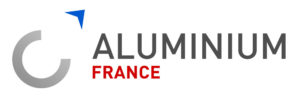Circular economy

Aluminum has many advantages: it is light, malleable, conductive and, above all, it can be recycled many times without losing its intrinsic properties.
Since its French invention at the end of the 19th century, this metal has been recycled daily. Recycling aluminum makes it possible to:
- preserve resources
- reduce energy consumption (95% less energy compared to that required for its primary production)
- reduce greenhouse gas emissions
Despite these advantages, the recycling of aluminum in France faces difficulties which could jeopardize its sustainability.
In 2018, France exported 500,000 tonnes¹ of aluminum waste (+ 5.6%) which was recycled outside our territories and then reimported in the form of ingots (110,000 tonnes in 2018).
However, our aluminum recycling plants regularly experience difficulties in supplying their furnaces with waste (production down 10% in 2018).
Aluminum recyclers are disappearing from our territories. This situation leads to a deficit in the French trade balance as well as a loss of know-how.
2018 figures for French recycling
- 10 refining plants: 210,000 tonnes of recycled aluminum production (-10%)
- 7 direct recycling plants: 280,000 tonnes of recycled aluminum production
- 6.5 TWh of energy saved by recycling aluminum
- 1,500 direct jobs

¹ Customs codes: 26204000, 76020011, 76020019, 76020090En
